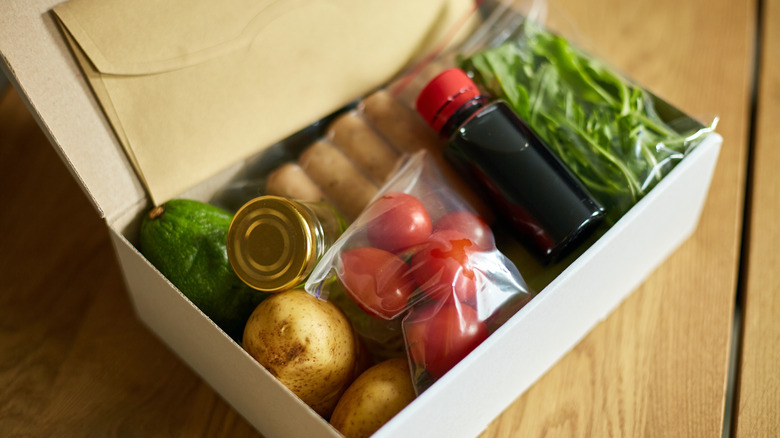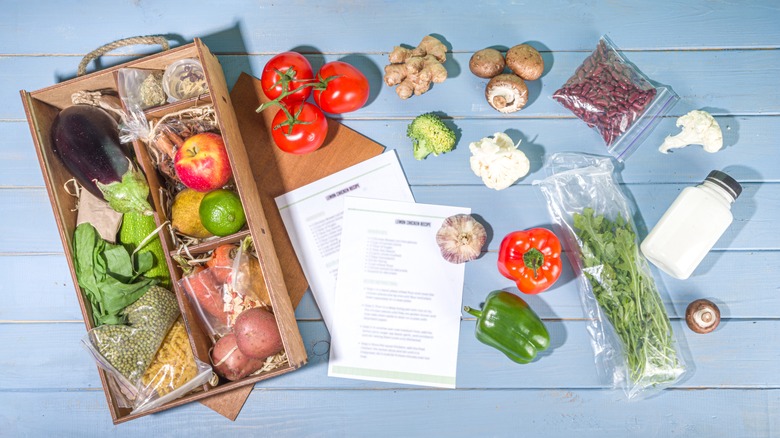Packaged Meals Aren't Always Worse For The Environment
It's no secret that some foods are better for the environment than others. While beef, for example, has quite a large carbon footprint, products from animals like chicken and plants have a relatively smaller one. While slogans like "eat better meat, less" and "don't be a meathead, go veg instead" make that easy enough to understand, what they fail to address is the kind of packaging different foods come in.
While it's fair to assume that plant-based proteins are more sustainable than animal-based ones, it's not always so simple when comparing other foods. Just look at all of the various plant-based milks out there. Sure, all are technically better for the environment than dairy milk, but if you start to compare the sustainability of one brand of oat milk to another, other factors must be taken into account. Things like sourcing, transportation, and packaging are all part of determining the environmental impact of any single product or meal — not just its ingredient list.
Once you start thinking about sustainability systemically, you'll realize some foods aren't as environmentally friendly as you thought. Similarly, you can't always assume that foods with a lot of packaging — like those from meal kit services — are less environmentally friendly than those that don't.
Meal kits vs. grocery stores
By comparing five meals with different types of protein from the meal kit service Blue Apron to the same meals bought with ingredients from the grocery store, a 2019 study published in the journal "Resources, Conservation, and Recycling" discovered that, on average, meals sourced from the grocery store were responsible for 33% more greenhouse gas emissions than the same ones from a meal kit. But how could that be possible?
As Shelie Miller, one of the study's co-authors, explains to Time, "When we're talking about meal kits, we tend to focus on plastic and packaging. We need to take a much larger, system-level view to really look at everything, from when things are produced all the way to when they're disposed [of]."
In fact, the study found that food waste is what cancels out a lot of the excessive packaging that meal kit services and packaged meals come with — cutting out as much as 38%, per a 2022 study published in the "Journal of Cleaner Production," when compared to grocery made meals. That's primarily because meal kits and packaged meals come pre-portioned, so each ingredient gets used in its entirety. According to the 2019 study, this, combined with the fact that they're delivered on routes with other packages, and use cooling packs rather than refrigerators, makes meal kits more environmentally friendly than the same meals using ingredients from a grocery store.

